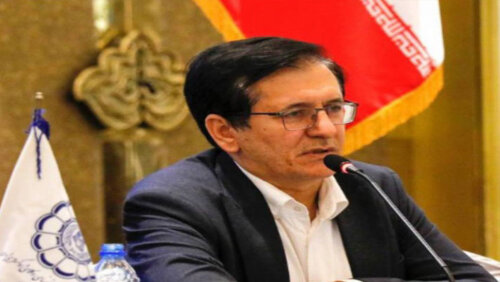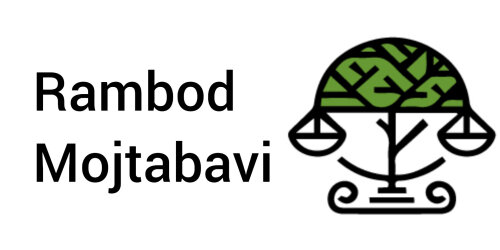Best General Litigation Lawyers in Iran
Share your needs with us, get contacted by law firms.
Free. Takes 2 min.
Or refine your search by selecting a city:
List of the best lawyers in Iran
About Litigation Law in Iran:
Litigation in Iran refers to the process of resolving disputes through the court system. It involves legal action taken by one party against another to enforce their rights or seek compensation for damages. This may include cases related to contracts, torts, property disputes, and more.
Why You May Need a Lawyer:
You may need a lawyer in Iran for litigation cases if you are facing a legal dispute that requires court intervention. Legal representation can help you understand your rights, navigate complex legal procedures, and advocate for your interests in court.
Local Laws Overview:
In Iran, litigation is governed by the Iranian Civil Code and the Iranian Code of Civil Procedure. These laws outline the procedures for filing lawsuits, presenting evidence, and appealing court decisions. It's important to understand the legal framework and requirements specific to Iran when pursuing litigation.
Frequently Asked Questions:
1. How long does a litigation process typically take in Iran?
The timeline for litigation cases in Iran can vary depending on the complexity of the case and the court's schedule. It's important to consult with a lawyer to get an estimate of how long your case may take.
2. What are the costs associated with hiring a lawyer for litigation in Iran?
The costs of hiring a lawyer in Iran for litigation cases can vary depending on the lawyer's experience and the complexity of the case. It's important to discuss fees and payment terms upfront with your lawyer.
3. Can litigation cases be settled outside of court in Iran?
Yes, parties involved in a litigation case in Iran can choose to settle their dispute outside of court through negotiation or mediation. This can help avoid the time and expenses associated with a court trial.
4. Is legal aid available for litigation cases in Iran?
Legal aid for litigation cases in Iran is available for individuals who meet certain criteria, such as financial need. It's important to inquire with legal aid organizations or government agencies for assistance.
5. How important is evidence in a litigation case in Iran?
Evidence plays a crucial role in litigation cases in Iran. It's important to gather and present relevant evidence to support your claims in court. A lawyer can help you navigate the rules of evidence and ensure that your case is properly supported.
6. What are the different types of courts in Iran for litigation cases?
In Iran, there are different types of courts for handling litigation cases, including civil courts, criminal courts, and administrative courts. The type of court that will hear your case depends on the nature of the dispute.
7. Can I appeal a court decision in a litigation case in Iran?
Yes, parties in a litigation case in Iran have the right to appeal a court decision to a higher court. The appeals process involves submitting a written appeal that outlines the grounds for challenging the lower court's decision.
8. What are the limitations for filing a lawsuit in Iran?
In Iran, there are statutes of limitations that set deadlines for filing lawsuits in different types of cases. It's important to be aware of these limitations and consult with a lawyer to ensure that your case is filed within the required timeframe.
9. How does jurisdiction work in litigation cases in Iran?
Jurisdiction determines which court has the authority to hear a particular litigation case in Iran. The rules of jurisdiction are based on factors such as the location of the parties, the subject matter of the dispute, and the amount of damages claimed.
10. What are the potential outcomes of a litigation case in Iran?
The potential outcomes of a litigation case in Iran include a judgment in favor of one party, a settlement agreement reached outside of court, or an appeal of the court's decision. It's important to consult with a lawyer to understand the possible outcomes of your case.
Additional Resources:
For additional resources on litigation law in Iran, you may consult the Iranian Bar Association, the Ministry of Justice, or legal aid organizations in Iran. These resources can provide valuable information and support for individuals in need of legal advice.
Next Steps:
If you require legal assistance for a litigation case in Iran, the first step is to consult with a qualified lawyer who specializes in litigation. A lawyer can assess your case, provide legal advice, and represent your interests in court. Be sure to gather all relevant documents and evidence to support your case and follow the guidance of your lawyer throughout the litigation process.
Lawzana helps you find the best lawyers and law firms in Iran through a curated and pre-screened list of qualified legal professionals. Our platform offers rankings and detailed profiles of attorneys and law firms, allowing you to compare based on practice areas, including General Litigation, experience, and client feedback.
Each profile includes a description of the firm's areas of practice, client reviews, team members and partners, year of establishment, spoken languages, office locations, contact information, social media presence, and any published articles or resources. Most firms on our platform speak English and are experienced in both local and international legal matters.
Get a quote from top-rated law firms in Iran — quickly, securely, and without unnecessary hassle.
Disclaimer:
The information provided on this page is for general informational purposes only and does not constitute legal advice. While we strive to ensure the accuracy and relevance of the content, legal information may change over time, and interpretations of the law can vary. You should always consult with a qualified legal professional for advice specific to your situation.
We disclaim all liability for actions taken or not taken based on the content of this page. If you believe any information is incorrect or outdated, please contact us, and we will review and update it where appropriate.
Browse general litigation law firms by city in Iran
Refine your search by selecting a city.
















